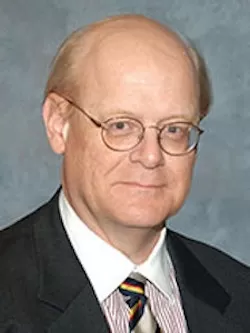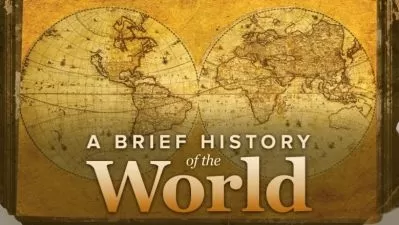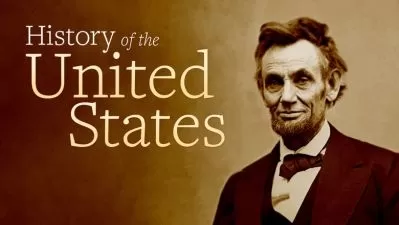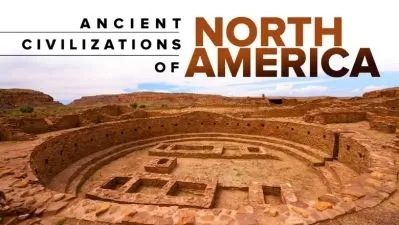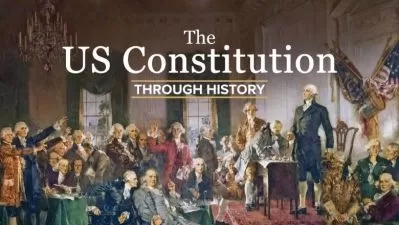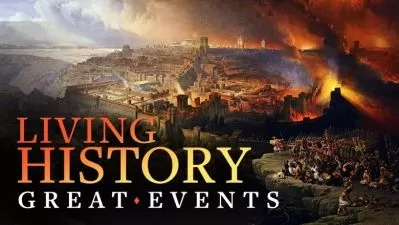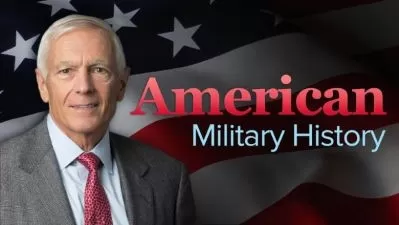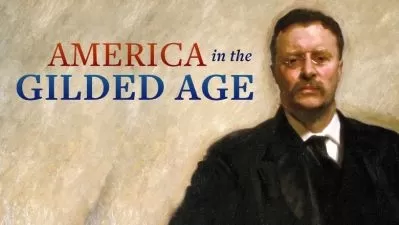America's Founding Fathers
Allen C. Guelzo
17:59:25
Description
The story of America’s founding—great men who debated, argued, persuaded, and negotiated their way to the U.S. Constitution—is as dramatic and instructive as any in the nation’s history. And there is no better way to tell the story of the Founding Fathers than by pairing an eminent U.S. historian with the very institution that is most synonymous with American history, the Smithsonian.
These men —Washington, Jefferson, Madison, Hamilton, and many others—are larger than life in our collective memory, having near-mythical status. Similarly, The U.S. Constitution is the oldest continually-operating instrument of government anywhere in the world serving as the backbone to the world’s most powerful democracy. Yet, few among us realize just how turbulent, contentious, even suspenseful the process was to draft and ratify it. That’s why The Great Courses and Smithsonian have joined forces to tell how this crucial drama in Western history unfolded.
Professor Allen C. Guelzo of Gettysburg College, whose Great Courses on U.S. history are among our most popular and highly rated, worked in close collaboration with the Smithsonian’s own curators of early American history to present a three-dimensional picture of the men who powered this unprecedented journey from colonies to nation and the resulting U.S. Constitution.
The truth is that the Founders were flawed, contradictory people with their own radical views on what America’s new government should look like. Through their lives, opinions, and deeds, one can see just how messy and rancorous a process was the formation of a “more perfect union.” By understanding this messiness, by seeing the creation of the Constitution as a process fraught with controversy and compromise, you can better appreciate just how much a miracle of government the U.S. Constitution is, and why we’re still arguing over it hundreds of years later. Now, more than ever, any well-informed citizen should understand how the Constitution lives, breathes, and endures.
America’s Founding Fathers is a deep dive into the creation of the U.S. Constitution as it actually happened – not as many are led to believe it happened. Professor Guelzo delivers 36 compelling lectures on the remarkable men who played their own unique role in the creation (and survival) of American democracy. Using the Founding Fathers as a lens through which to see powerful truths about the early political history of the United States, you’ll better understand both the document under which Americans live and the people who brought it into being.
Into the Forge of American Democracy
Designed as a chronological narrative and richly supported by images and artifacts from the Smithsonian’s unparalleled collections of historical Americana, giving you a multifaceted experience you can’t get without visiting the Smithsonian museums in Washington D.C., America’s Founding Fathers takes you from the closing days of the American Revolution to the opening decades of the United States under the newly created U.S. Constitution. While these 36 lectures are detailed, they are highly accessible for all learners, from high school students to retired history buffs.
Told like the dramatic, turbulent story that it is, each lecture uses an individual Founder as a doorway through which to examine the process involved in crafting the Constitution. Less a biography of individuals, Professor Guelzo’s course is instead a composite biography of one of the greatest political documents in history.
- Struggling and Questioning: The Articles of Confederation, crafted during the chaos of the American Revolution, was fast becoming an out-of-touch document at the start of the American experiment. In a series of lectures on the men who questioned the Articles, you’ll learn how the Founders quickly understood just how untenable they were for solving serious crises facing the new nation, and how they worked both separately and in concert to replace the Articles with someone more solid and sound.
- Convening and Ratifying: You’ll plunge into the forge of American democracy, namely the 1787 Constitutional Convention in Philadelphia. Professor Guelzo helps you make sense of the tempest of arguments waged and committees established over representation, a new national executive, the issue of slavery, and human rights. You’ll also learn about the struggle for state ratification of the proposed constitution, in some ways an even more arduous task than drafting a new government.
- Governing and Evolving: The story doesn’t end with the official ratification of the U.S. Constitution. The new government had to adjust to a new set of rules – and, in some cases, work tirelessly to change or adapt them. Once the U.S. Constitution was put into place, the nation saw the rise of political parties, the increasing connection of the new nation with Christianity, the dawn of a new national character, the creation of a national army, international conflicts, and domestic acts of treason.
The 36 Men Who Made America
What makes America’s Founding Fathers such an interesting way to probe the story of the U.S. Constitution is Professor Guelzo’s use of the perspective of these historic figures as fresh angles on unknown or often unconsidered perspectives. Familiar or unfamiliar, these 36 individuals were each, in their own way, integral to what makes the Constitution the complex document it is today. Each profile of these significant figures and their contributions is supplemented with images from Smithsonian’s National Portrait Gallery and the National Museum of American History, giving a human dimension to near-mythic figures such as:
- Thomas Jefferson: Enlightenment philosophers like Locke, Montesquieu, and Adam Smith were crucial to the political ideology of Thomas Jefferson, and helped him see the glaring inadequacies of the Articles of Confederation.
- Elbridge Gerry: As head of the Constitutional Convention’s Grand Committee, Elbridge Gerry helped to settle the question of what America’s new Congress would look like and how representation would be distributed among the two branches.
- Alexander Hamilton: The Federalist Papers were so named by Alexander Hamilton as a daring act of aggression to give him the high ground over the anti-Constitutionalists, who saw themselves as defenders of federalism.
- John Marshall: A veteran of the Continental Army, Supreme Court Chief Justice John Marshall did not hesitate to use the federal judiciary, in landmark cases like Marbury v. Madison, to save the republic from the dangers of Republicanism.
- James McHenry: As Secretary of War under John Adams, James McHenry put the nation’s army and navy into play for the first time. His aim was to dispel the fantasy that professional armies were the enemy of the republic and militias its only salvation.
- Aaron Burr: The case that resulted from the “assassin” Aaron Burr’s infamous duel with Alexander Hamilton (in which the latter was killed) actually highlighted the willingness of the Constitution to protect the liberties even of those who meant it harm.
- James Madison: The last Founder to serve as president, James Madison’s tenure was subsumed by the War of 1812, a national catastrophe that history now looks on as an obscure conflict for which the United States of America was ill-prepared.
- Alexis de Tocqueville: In his Democracy in America, the French writer Alexis de Tocqueville found that the glue holding the American republic together was not virtue so much as self-interest (which also made equality more important than liberty).
A Battle Still Being Waged
Professor Guelzo is acclaimed by Great Courses customers for his engaging, dramatic delivery. And as a New York Times bestselling author whose books have won numerous awards, including the Lincoln Prize, he knows how to craft a story. One of our most highly rated professors, he transforms stories of meetings, arguments, and committees into a grand narrative of political intrigue, philosophical dilemmas, and international tension.
Professor Guelzo’s lectures are packed with information and insights you won’t find in a cursory reading of a history textbook. And this course offers something few other historical surveys can: the combination of a dynamic professor with the unrivaled American history collections and expertise of the Smithsonian. Thanks to unprecedented access to their archives and expert guidance, the video version of this course features historic portraits from the National Portrait Gallery, important historical documents and artifacts from the National Museum of American History, and highlights some of the most eminent quotes in American history.
Free government, according to Professor Guelzo, is an awkward, constantly-adjusting dance between liberty and power that doesn’t take efficiency into account. “But the Founders were not concerned with efficiency,” he says. “They were concerned with liberty. And they knew that its life was always precarious.”
America’s Founding Fathers invites you to experience this precarious, tense battle between power and liberty – a battle that’s still being waged, and that will be waged for decades to come.
More details
User Reviews
Rating
Allen C. Guelzo
Instructor's CoursesDr. Allen C. Guelzo is the Senior Research Scholar in the Council of the Humanities and Director of the Initiative on Politics and Statesmanship in the James Madison Program at Princeton University. He holds an M.A. and a Ph.D. in History from the University of Pennsylvania. Among garnering other honors, he has received the Medal of Honor from the Daughters of the American Revolution. He is a member of the National Council on the Humanities. Professor Guelzo is the author of numerous books on American intellectual history, Abraham Lincoln, and the Civil War era. His publication awards include the Lincoln Prize as well as the Abraham Lincoln Institute Prize for two of his books-Abraham Lincoln: Redeemer President and Lincoln's Emancipation Proclamation: The End of Slavery in America–making him the first double Lincoln laureate in the history of both prizes. His critically acclaimed book, Lincoln and Douglas: The Debates that Defined America, was published by Simon & Schuster in 2008. Professor Guelzo has written for The American Historical Review, The Washington Post, and The Wall Street Journal, and he has been featured on NPR's Weekend Edition Sunday, C-SPAN's Booknotes, and The Daily Show with Jon Stewart.

The Great Courses
View courses The Great Courses- language english
- Training sessions 36
- duration 17:59:25
- English subtitles has
- Release Date 2023/06/06





